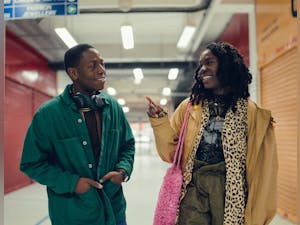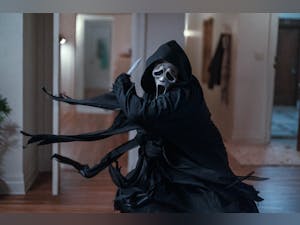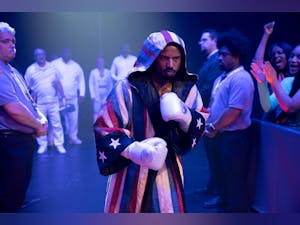From: Silver Screen
The Founder: True stories don't always have happy endings
Whether it’s opening your Happy Meal to reveal your special toy, dipping your McNuggets into a variety of sauces or running around the PlayPlace during a birthday party, almost every American has a memory at McDonald’s. The Founder tells the true story of how one family-owned San Bernardino burger shack became one of the most recognized and profitable fast food chains in the world. And it’s not what you think.
Director John Lee Hancock produces yet another Hollywood portrayal of an American business exposed for its true colors. Think The Social Network and Jobs, but somehow this film feels so much more personal. The Founder follows Ray Kroc’s (Michael Keaton) journey to bring burgers to the masses, but he’s not the true founder at all.
The film begins in 1954 St. Louis, where Kroc is desperately trying to sell milkshake making machines. He travels between drive up restaurants throughout the Midwest, consistently being rejected from owners, and snarling at the loud teenagers and slow service. Suddenly, everything changes when he visits McDonald’s, which is beyond anything he has seen before. Brothers Dick McDonald (Nick Offerman) and Mac McDonald (John Carroll Lynch) created the revolutionary establishment, where customers order at the window and meals are ready in just 30 seconds. Kroc is blown away by the business, and encourages the brothers to franchise the restaurant. With great hesitation, they eventually agree to a deal, though they slowly tumble into a dark hole of regret.
In the first half of the film, the audience finds themselves reminiscing about the novelty of McDonald’s, even if they didn’t grow up in the 50s. When Kroc orders his very first burger, the audience burst out in laughter at his disbelief of the speed and system. Keaton’s portrayal of the persistent Kroc is truly outstanding, and somehow makes such an unlikable character work as a protagonist.
The McDonald brothers share a heartwarming and relatable sibling dynamic. Offerman’s character felt a little too similar to his popular role as Ron Swanson on Parks and Recreation, with similar personality traits and values. The brothers and Kroc act seamlessly together -- even in moments of tension, the audience senses the connection of actors.
Kroc’s wife Ethel (Laura Dern) is the only seemingly out of place character. Though her relationship with Kroc is rocky from the beginning, the actors don’t seem to have any romantic chemistry on screen. She portrays an unsupportive, cold wife, but even in moments where Ethel comes around, there always seems to be a wall between the characters. The chemistry is clearly not there -- which might be the point -- and the end of their relationship doesn’t come as a shock.
The end of the movie leaves the audience feeling a bit uneasy. Based on a true story, there’s not a lot of sugarcoating that can be done, but it almost elevates the reality of the film. True stories don’t always have happy endings -- and sometimes what we want to believe isn’t the truth. Would I have liked to believe that the McDonald brothers received the reward they deserved for being the true founders? Sure. But Keaton does an expert job in portraying a man that is truly ruthless, almost heartless, in his desire for success. Kroc represents the founder of McDonald’s, taking full credit for everything the brothers worked for. After all, Kroc firmly believed persistence prevailed over all.
Grade: A-




